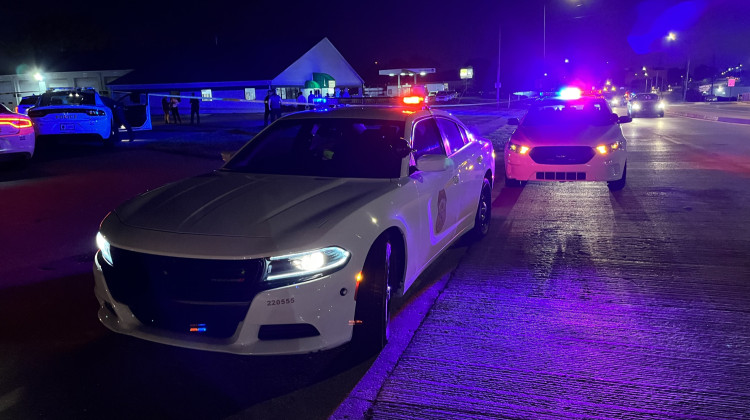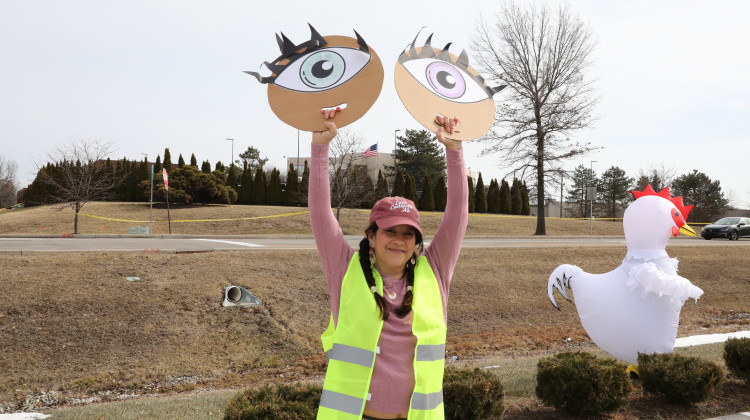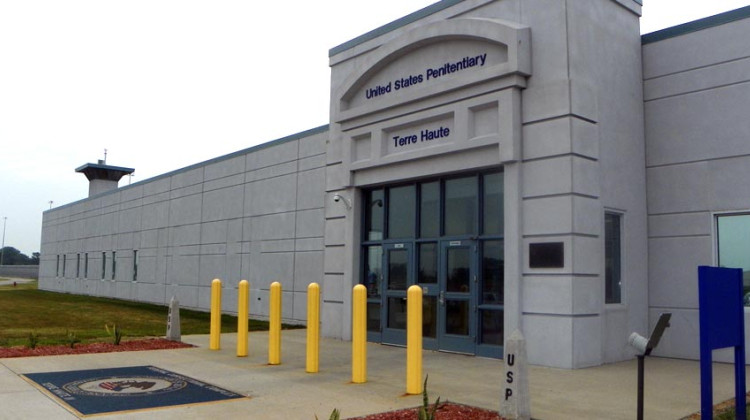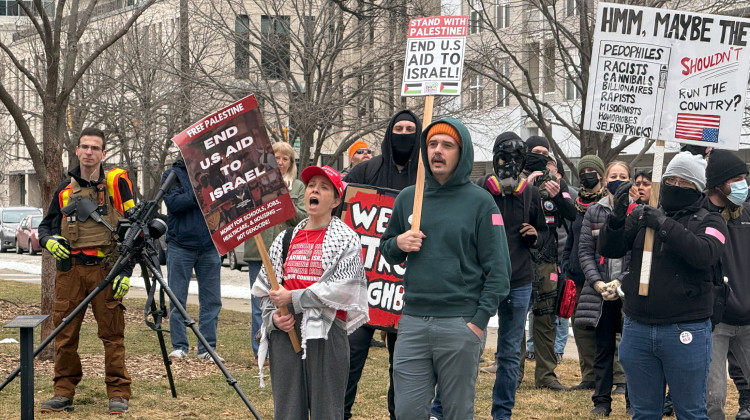
The city previously employed a public safety director, who reported to the mayor and oversaw eight agencies including police, fire, animal control and homeland security.
Ben Thorp/WFYI NewsCriminal justice has been at the forefront of Indianapolis’ 2023 mayoral race, with both candidates – Democratic incumbent Joe Hogsett and Republican Jefferson Shreve – campaigning on how they will address public safety.
Both have said they will work to hire and retain more Indianapolis Metropolitan Police Department officers, change state law surrounding gun control and address root causes of crime.
But an issue Hogsett and Shreve do differ on is the importance of the public safety director role.
The city previously employed a public safety director, who reported to the mayor and oversaw eight agencies including police, fire, animal control and homeland security.
Hogsett restructured the city’s administration in 2016 – eliminating the Department of Public Safety and its director role.
Instead, he created the Office of Public Health and Safety with goals to invest in grassroot groups and take a more holistic approach to reduce crime. Half of the agencies the public safety director oversaw were wrapped into OPHS and the others were moved into other departments.
Hogsett also created a deputy mayor of public health and safety role. In addition to crime, the position also addresses issues like homelessness and mental health.
Under Hogsett’s administration, the city's police and fire department chiefs report directly to the mayor.
Hogsett maintains that the public safety director position is not needed. He also said when the role existed, it included too many responsibilities.
“I'd rather the police chief report to me directly than anyone else,” he said.
Hogsett previously worked as a federal prosecutor, and said his previous experience in public safety enabled him to work well with law enforcement.
“I thought that I was uniquely well positioned to be able to accept the responsibilities directly and work with IMPD and IFD in a hands-on and direct way,” he said.
Hogsett frequently points to his three-year violence reduction plan, which started last year. He attributes the 16 percent decrease the city saw in homicides last year to the effort.
When Shreve released his own public safety plan in July, he announced that he would bring back the position. He said a mayor doesn’t have the time to fulfill their other duties and be in charge of overseeing law enforcement.
“Someone at the most senior level needs to be living, thinking about these challenges and moving the needle in the right direction every single day,” Shreve said.
He added that he isn’t concerned about finding the funds to pay a public safety director.
“We've got a $1.6 billion budget,” Shreve said. “I mean, this is a key position, but the salary requirement is a rounding number.”
Others weigh in
In a statement, Rick Snyder, the president of the Indianapolis Fraternal Order of Police, said he is “not opposed to the concept,” but does not deem it necessary to have a director.
“We do not see the value of another layer of bureaucracy for policing,” Snyder’s statement reads in part. “Instead, we prefer the value of a direct line of communication between the Chief of Police and the Mayor allowing for clear lines of accountability for policy and management decisions.”
Lauren Rodriguez, the city’s current deputy mayor of public health and safety, said she doesn’t think it would be effective to have another person in between the city’s public safety efforts and the mayor. Rodriguez reports directly to Hogsett, and oversees OPHS and the Citizens Police Complaint Office.
“Why add in another layer to prolong things, especially when it comes to public safety and public health? Those are very critical areas,” she said.
David Greene, a pastor and president of the Concerned Clergy of Indianapolis, thinks Indianapolis should have a public safety director.
He pointed to an increase in officer-involved shootings in Indianapolis. There have been 14 shootings involving IMPD officers this year. The number of police shootings to date in 2023 has now surpassed the number of such incidents in 2022 (10), 2021 (13), 2020 (7), 2019 (6), 2018 (4), and 2017 (8). IMPD reported 16 police shootings in 2016.
Greene said a public safety director could take a closer look at the recent spike in numbers.
“That's why you need a public safety director, who is focusing on looking across the country to see what's going on,” Greene said. “What's in place? Do we need to shift the training?”
Greene also said he believes different people should oversee the sectors of public safety and health.
“Public safety is job one and it needs to, it needs a public safety director,” Greene said. “This person is laser focused on this day in and day out. You know, eating, sleeping, if you will, I think that's necessary.”
Rodriguez said it’s hard to look at public safety and not look at public health. She said a lack of access to food, mental health care and more can lead to someone being more likely to be affected by the justice system.
“Whenever you're thinking about public safety, there's some element of public health,” Rodriguez said. “And when you think about public health, there's always some element about public safety.”
Shreve’s public safety strategy cites a focus on “the security of lives and property” for the director role. It also underlines the need for other city departments to work to solve the “quality of life issues that affect crime — hunger, deeply-rooted mental health issues, dependency issues and economic blight.”
OPHS has worked on several initiatives that involve the intersection of crime and health, including the Clinician-led Community Response Team, which allows clinicians to respond to mental health calls instead of police.
Additionally, under Hogsett’s administration, the city opened the Assessment and Intervention Center at the new Community Justice Campus. The AIC helps to connect people experiencing a mental health or substance use issue with treatment and care instead of incarcerating them – something Shreve also calls a priority in his plan.
Election Day is Nov. 7.
Contact WFYI criminal justice reporter Katrina Pross at kpross@wfyi.org.
Pross is a Corps Member of Report for America, an initiative of The GroundTruth Project.
 DONATE
DONATE






 Support WFYI. We can't do it without you.
Support WFYI. We can't do it without you.